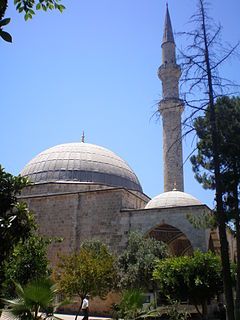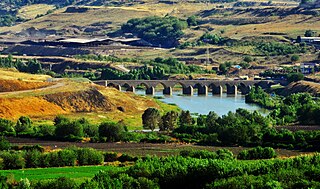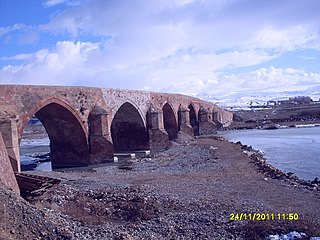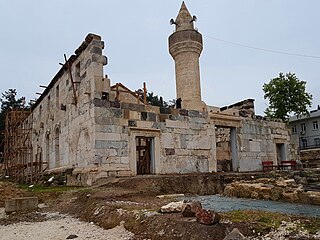| Bıçakçı Bridge Bıçakçı Köprüsü | |
|---|---|
| Coordinates | 36°56′50″N33°02′20″E / 36.9473°N 33.0390°E Coordinates: 36°56′50″N33°02′20″E / 36.9473°N 33.0390°E |
| Crosses | Göksu |
| Owner | General Directorate of Highways of the Ministry of Transport, Maritime and Communication |
| Heritage status | Karamanids |
| Characteristics | |
| Material | Stone |
| Total length | 81.60 m (267.7 ft) |
| Longest span | 20 m (66 ft) |
| History | |
| Construction end | 14th century |
Bıçakçı Bridge (literally "Cutter's Bridge") is a historic deck arch bridge in Karaman Province, southwestern Turkey. It is on the road Bucakkışla - Ermenek, and spans over the Göksu River at 36°56′52″N39°22′23″E / 36.94778°N 39.37306°E .
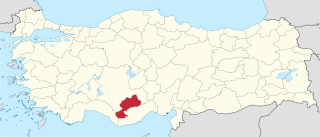
Karaman Province is a province of south-central Turkey. It has an area of 9,163 km². It has a population of 232,633. According to the 2000 census the population was 243,210. Population density is 27.54 people/km². The traffic code is 70. The capital is the city of Karaman. Karaman was the location of the Karamanid emirate, which came to an end in 1486.
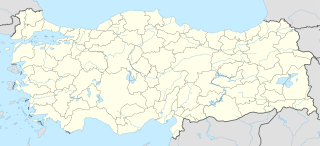
Bucakkışla is a village in Karaman Province, Turkey.

Ermenek is a town and district of Karaman Province in the Mediterranean region of Turkey. As ancient Germanicopolis, a former bishopric, it remains a Latin Catholic titular see.
The length of the asymmetric stone deck arch arch bridge is 81.60 m (267.7 ft). Its width is 5.1 metres (17 ft) It consists of a 20 m (66 ft)-long main arch flanked by two minor arches. There are also four auxiliary flood openings two in each side. The exact construction date is unknown. Judging from the masonry, it is assumed that the bridge was built in the 14th century when the area around the bridge was under the rule of Karamanids. [1] [2]

The Karamanids or Karamanid dynasty, also known as the Principality of Karaman and Beylik of Karaman, was one of the Islamic Anatolian beyliks, centered in south-central Anatolia around the present-day Karaman Province. From the 13th century until its fall in 1487, the Karamanid dynasty was one of the most powerful Turkish beyliks in Anatolia.


